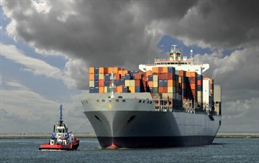
Several shipping groups have launched the "Declaration of the Electronic Bill of Lading" (eBL) to secure industry-wide commitment to digitalisation to help make international trade more efficient, reliable, sustainable, and secure.
Members of the FIT Alliance — BIMCO, DCSA, FIATA, ICC, and Swift — noted that the aim of the declaration is to secure a commitment from all stakeholders in international trade to collaborate on driving digitalisation, starting with eBLs within their industries.
In a statement, the FIT Alliance noted that every year, ocean carriers issue around 45 million bills of lading, one of the most important trade documents in shipping.
Currently, many international shipping documents are not standardised, and the majority are still paper-based, requiring physical hand-off between participants.
"The adoption of eBLs will enable the trade industry to benefit from faster transactions, cost savings (e.g. reduced administrative cost of cargo holding and document processing), and lowered fraud risks (through the use of digital authentication systems)," the announcement said.
In 2022, only 2.1% of bills of lading and waybills in the container trade were electronic.
This is despite the fact that end-to-end digitalisation of trade documentation, starting with eBL, will cut costs and make international trade more efficient, reliable, secure, sustainable and less susceptible to illegal activity or fraud.
It noted that in the dry bulk sector, there are some encouraging signs of growth, as four of the world's largest mining companies are already carrying around 20% of their iron ore shipments on eBLs.
A McKinsey study estimates that if eBL achieved 100% adoption in the container sector alone, it could unlock US$30-40 billion in global trade growth by reducing trade friction in the container trade alone.
It could also help save 28,000 trees per year, equivalent to around 39 football fields of forest, and significantly reduce carbon emissions by eliminating paper.
"A universal eBL will benefit all stakeholders involved in the global supply chain, whether in bulk shipping or container shipping. Achieving widespread adoption of a standards-based eBL will benefit not only the shipping industry but also the global movement of goods, at a time when supply chain resilience is challenged," the FIT Alliance said in the common statement.
"This declaration is a significant symbol of our joint dedication to shape the future of shipping. Transforming document exchange through a globally applicable eBL will accelerate trade digitalisation to the benefit of customers, banks, customs, government authorities, providers of ocean shipping services and all other stakeholders."
As many of the technical and legal obstacles to universal eBL are already being addressed, a clear commitment to digitalisation from everyone involved in international trade is a crucial next step.
The FIT Alliance said by signing the eBL Declaration, all stakeholders can publicly signal their readiness for change and their commitment to collaborate to drive digitalisation within their industries.
The FIT Alliance was formed in 2022 by BIMCO, the Digital Container Shipping Association (DCSA), the International Federation of Freight Forwarders Associations (FIATA), the International Chamber of Commerce (ICC), and the Society for Worldwide Interbank Financial Telecommunications (Swift).
In forming the alliance, the groups have united behind the mission to standardise the digitalisation of international trade.
"We are happy that our partners have signed up to this new agreement that will help accelerate trade digitalisation through a globally applicable eBL to the benefit of an incredibly diverse set of stakeholders from customers to government regulators, through to shipping services from every industry," said
Niels Nuyens, head of digital trade at DCSA, said.
"To achieve widespread use of eBL, we must all be on board with adopting digital B/L standards. This agreement from our diverse industry associations is an exciting milestone in our journey towards standardising all container shipping documentation through our shared initiative," he added.



